what happens to metal if you leave vinagar on it too long
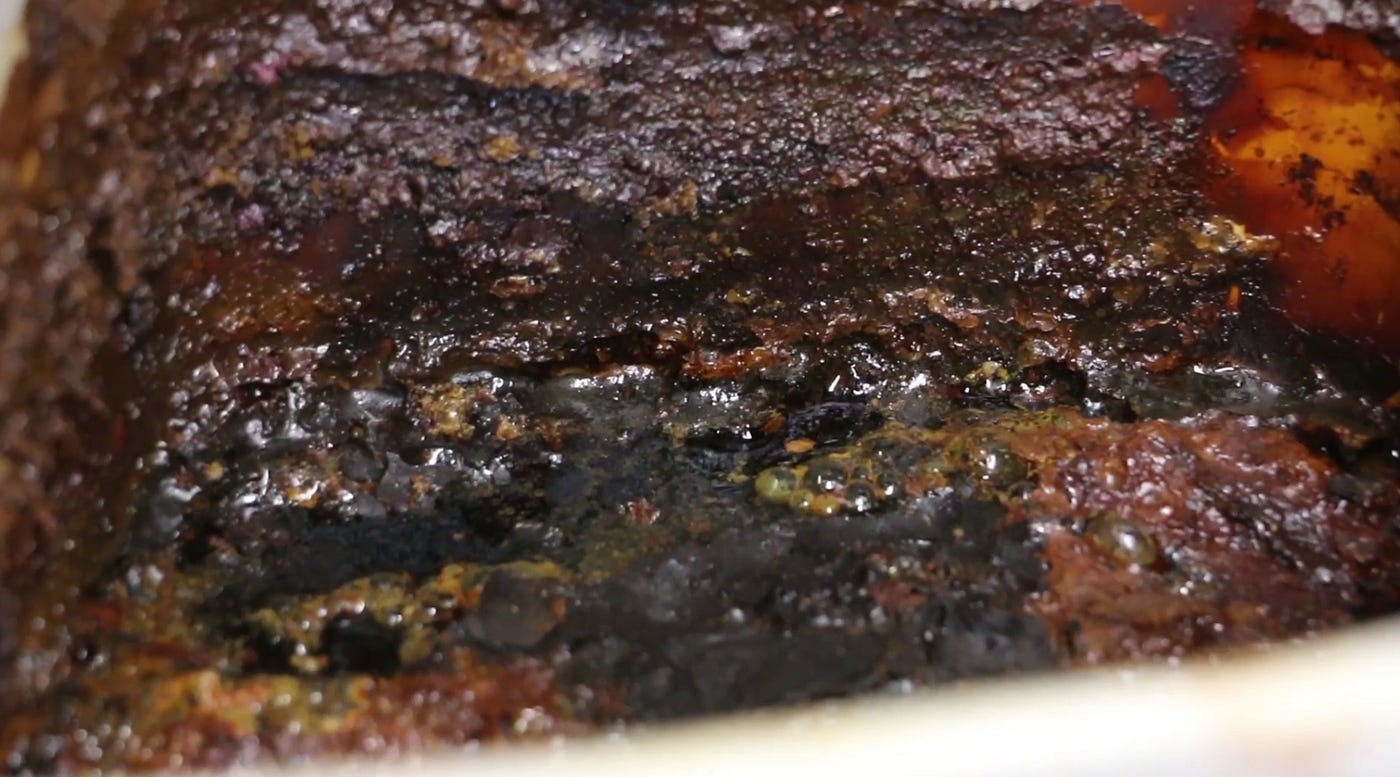
Vinegar rust removal, xix months later
There are lots of ways to remove rust from metal. All of them have their tradeoffs: wire wheels can't make it tight places, electrolysis produces explosive hydrogen, etc.
Vinegar is no exception. It's past far the simplest process. You only dump your rusty junk in a saucepan of vinegar and wait. But it takes a while. "The longer you lot look, the better it works," the greater Internet claims.
Well, how long is "longer"? YouTube maker Jimmy DiResta reports excellent results after an overnight soak. The QuietSelfReliance channel left rusty bolts in vinegar for four weeks to great effect.
But both of those attempts seemed to leave some amount of rust that had to exist removed afterward the fact.
Would an even longer bath be amend? Or could information technology destroy the metal? I headed for my garage in the proper noun of science to find out.
Outset, I sorted through my pile of old, rusty tools. The worst offenders were covered in a layer of powdery rust, making them unpleasant to use at best and unusable at worst. I threw those in a small trash tin can, submerged the tools in white vinegar, covered the can with some sealable plastic from the kitchen, and set the mixture off to the side in the garage. I figured I'd come back at the end of the summertime and see how the tools fared.
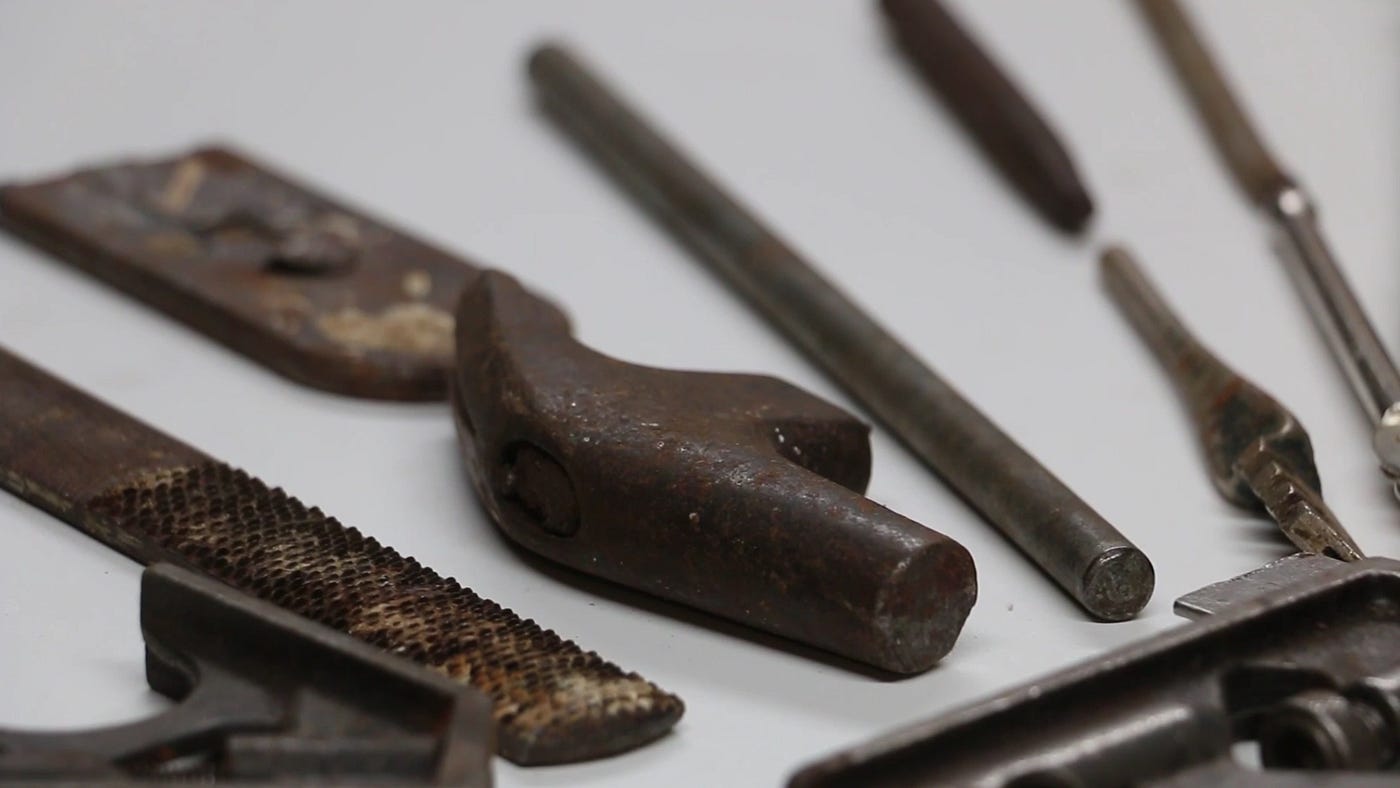
Well, that was April 2015. In June of that year, I found out I was going to exist a dad. This spurred a mad rush of projects at Reuter Acres. The house had to be painted, the carpet needed to exist removed from the kitchen, the water heater needed to exist replaced, etc. And that'due south non counting the arrival of the kid. There wasn't much fourth dimension for frivolousness.
Hither nosotros are, nineteen months afterward, and I finally got back to ye olde trash can. What would be left inside? Gleaming tools? Iron mush? Or something in betwixt?
I turned on my camera, put on my gloves, and dipped in. Watch the video above for the full results.
For those who are stuck in whisper-only libraries, take terrible Internet connections, or just desire more information, I'll mail some spoilers below.
What was left in the rusty vinegar?
Tools! They weren't completely dissolved. But different items had different results.
First, I dug effectually in the saucepan and pulled out all the solid pieces I could find. All were covered in rusty goo. I covered those in a baking soda and water mixture to neutralize the vinegar, then lightly scrubbed the tools to remove the mush. After a few rinse baths, I dipped them in Prep and Etch phosphoric acrid solution from Home Depot to protect the tools from flash rust and fix them for painting. After 30 minutes, I rinsed them off and left them on paper-thin to dry. The next twenty-four hour period, I sprayed them with Rustoleum Ultra Cover Satin Clear Spray, ii coats on each side, and let them dry again for 24 hours. Now they were set up for closer inspection.
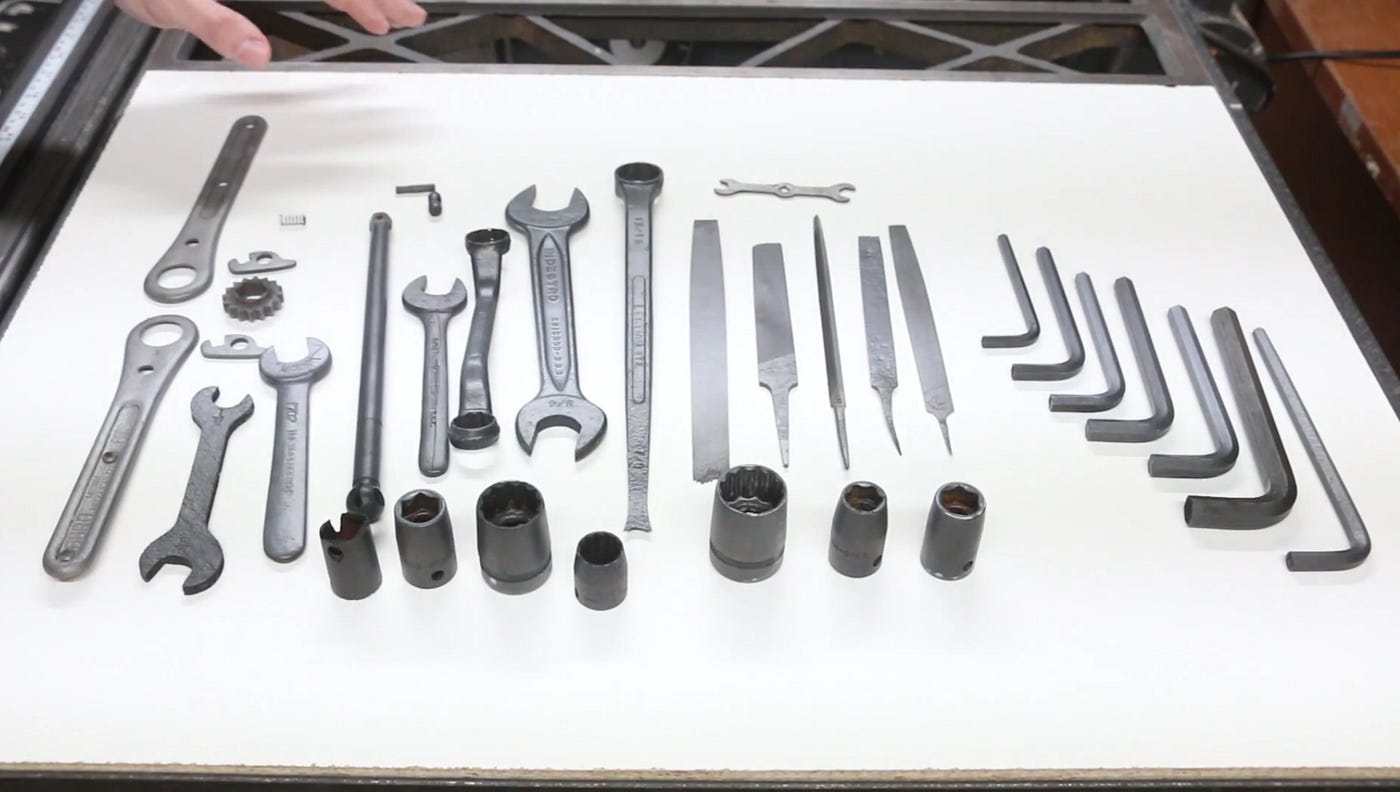
Nigh of the wrenches looked unscathed. The files were noticeably thinner, almost knife-blade-esque in spots. Some of the sockets had deep, empty pores on the ends. My friend Henry, a metals guy, saw similar results when doing this procedure with much stronger acid. He theorizes that those pockets already were rusted, but the rust wasn't visible. The acid is drawn to the rust, eating it up all the mode into the tool, leaving behind the spongy texture.
The most dramatic effect was apparent on a long, double-box-end wrench. It appeared as though one cease had completely dissolved. I suspect that end was submerged in the rusty muck at the bottom of the saucepan, exposing it to more destruction.
The almost interesting thing to me was the vinegar's consequence on a pocket-size spring: It looked perfect. I would take thought that such thin metal would have been destroyed for certain. Simply the leap was enclosed inside a Duro ratcheting wrench, which must have protected from both the rust and the vinegar.
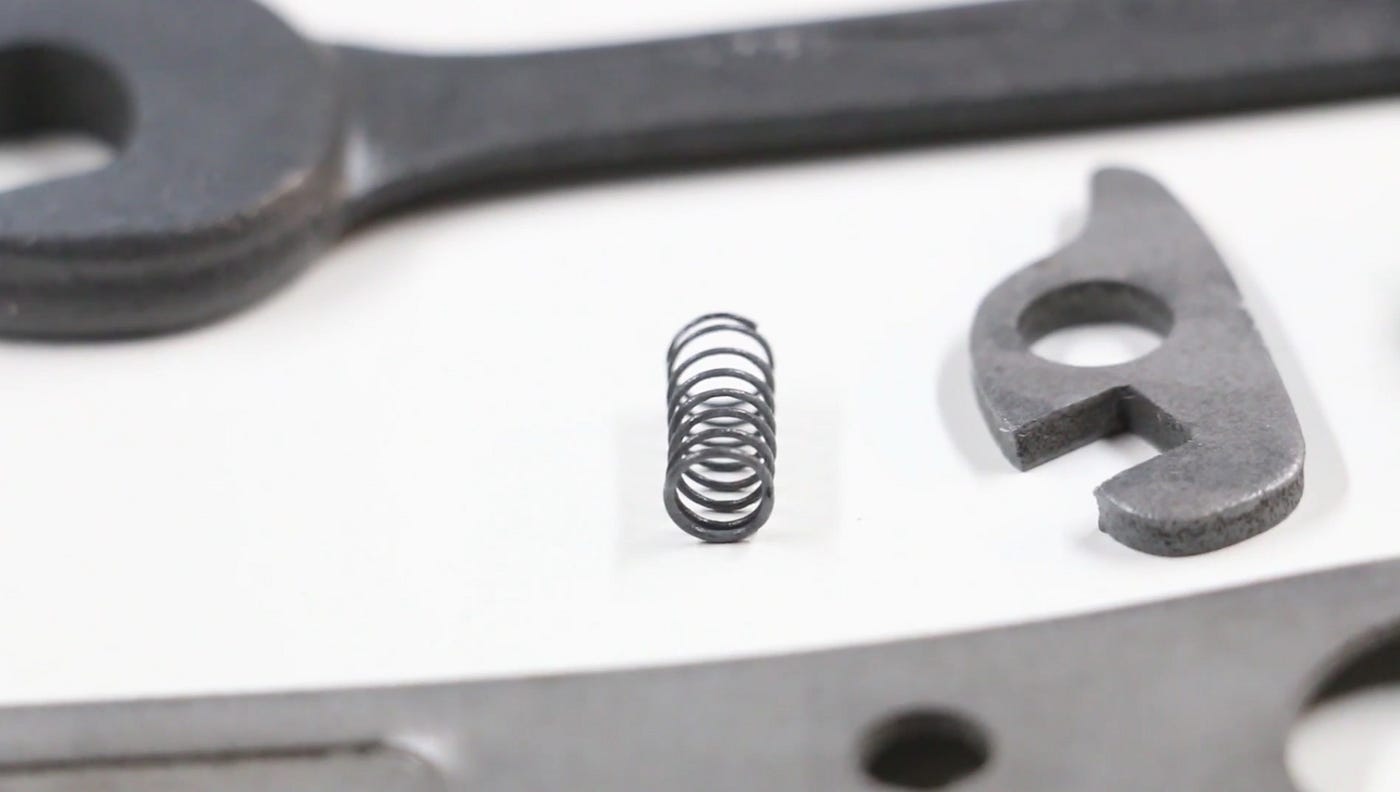
Would I do this once more? I wouldn't hestitate to use the vinegar-rust-removal technique for a shorter length of time, even a few weeks. But there really are some interesting creative implications for the long-term arroyo. The previously mentioned sockets, for example, are fascinating to look at. Information technology might be fun to take a chunk of metal and half submerge information technology in the vinegar for an extended menses of fourth dimension to become a similar consequence.
If you requite this a try, allow me know how it goes! Thanks for reading and watching.
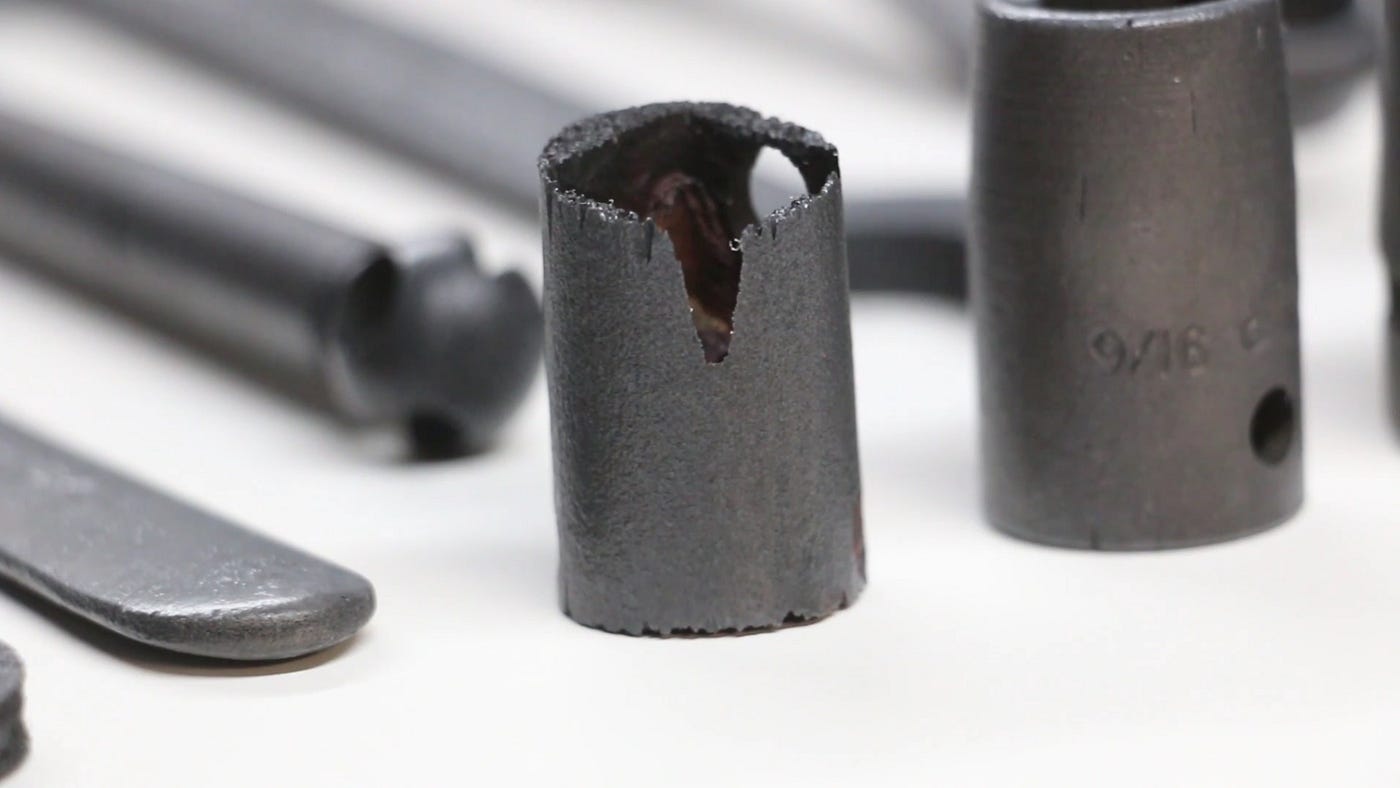
Source: https://medium.com/project-lab/vinegar-rust-removal-19-months-later-b6e97ec87a1c
0 Response to "what happens to metal if you leave vinagar on it too long"
Post a Comment